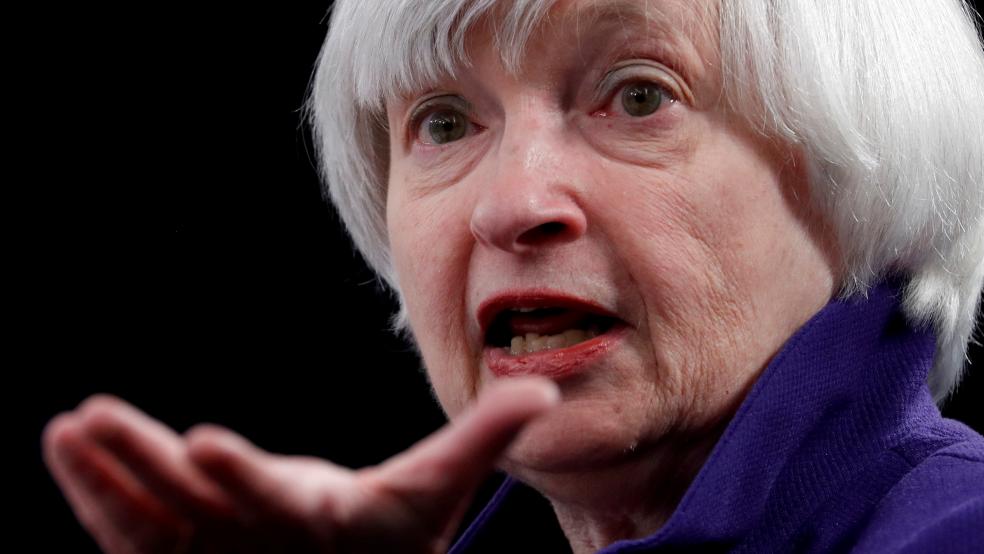The Biden administration and congressional Democrats are scaling back a controversial proposal to have banks report more information to the Internal Revenue Service after their initial plan was met with a backlash from the financial services industry and Republicans.
The original proposal, part of a larger effort to generate more revenue by cracking down on tax cheats, called for financial institutions to provide data to the IRS on accounts with annual deposits or withdrawals totaling more than $600. But the plan generated a storm of criticism from Republicans, and a fierce lobbying campaign by banks, with both groups raising alarms about a government invasion of privacy. Some critics also falsely claimed that the IRS would be tracking individual transactions.
The revised plan, outlined Tuesday by Senate Finance Committee Chair Ron Wyden (D-OR) and Sen. Elizabeth Warren (D-MA) and endorsed by the Treasury Department, would set the reporting threshold at $10,000 a year and includes exemptions for payroll deposits and Social Security benefits, among other things. “We’re adding language to ensure enforcement efforts are focused on the very wealthy,” Wyden said.
Taking aim at tax dodgers: The Biden administration insists that the new reporting requirement is meant only to help collect unpaid taxes from the rich and that audit rates won’t go up for taxpayers making less than $400,000 a year. The requirement is aimed at addressing what the Biden administration describes as a two-tiered system in which wage earners, who have their incomes reported to the IRS, comply with tax rules at a far higher rate than people — mostly wealthy — who generate substantial income from sources that don’t get reported to the government, making it harder to suss out tax evasion.
“Under the current system, American workers pay virtually all their tax bills while many top earners avoid paying billions in the taxes they owe by exploiting the system,” Treasury Secretary Janet Yellen said in a statement Tuesday. “This two-tiered tax system is unfair and deprives the country of resources to fund core priorities. Today’s new proposal reflects the administration’s strong belief that we should zero in on those at the top of the income scale who don’t pay the taxes they owe, while protecting American workers by setting the bank account threshold at $10,000 and providing an exemption for wage earners like teachers and firefighters.”
Critics unmoved: The proposed changes did little to quell criticisms from Republicans and the banking industry.
“Even with the modifications announced today, this proposal still goes too far by forcing financial institutions to share with the IRS private financial data from millions of customers not suspected of cheating on their taxes. The exclusion of payroll and federal program beneficiaries does not address millions of other taxpayers who would be impacted by the proposal,” said Rob Nichols, president and CEO of the American Bankers Association, in a statement. “If enacted, this new proposal would still raise the same privacy concerns, increase tax preparation costs for individuals and small businesses, and create significant operational challenges, particularly for community banks.”
Sen. Kevin Cramer (R-ND) reportedly warned: “Marx is at the doorstep.”
The Treasury Department estimates that tax evasion among the top 1% of taxpayers costs the U.S. more than $160 billion a year, or about 28 percent of unpaid taxes.
Treasury officials had estimated that the original reporting requirements would generate $460 billion over a decade, while a narrower plan might raise $200 billion to $250 billion.





